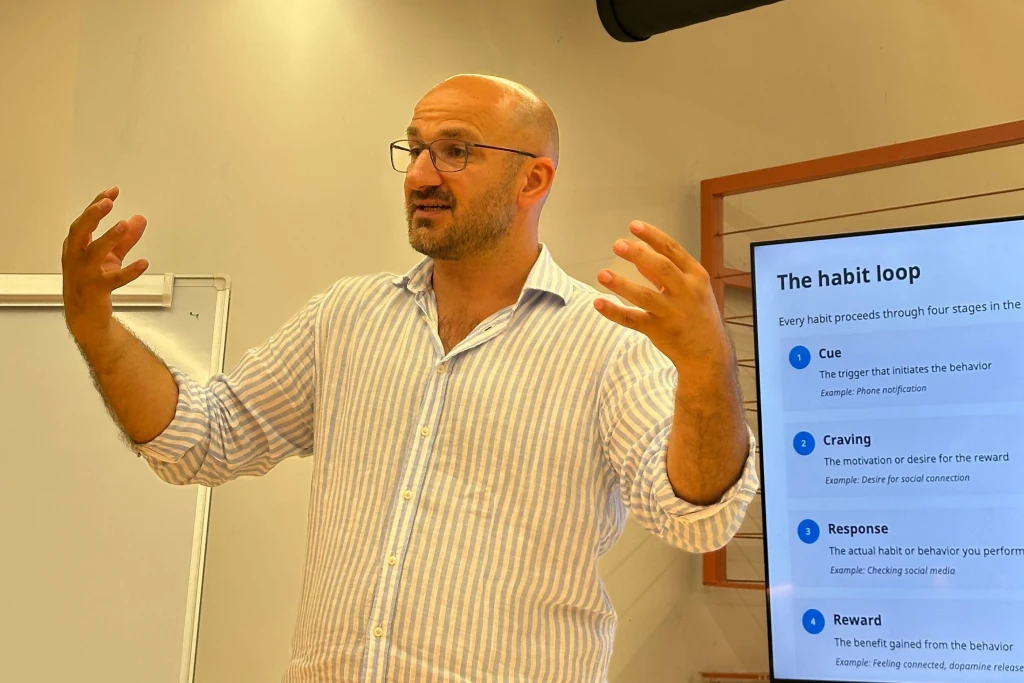Große Veränderungen brauchen nicht immer große Maßnahmen, manchmal machen die kleinsten Änderungen den größten Unterschied.
Das war die wichtigste Botschaft bei unserer letzten Gastvortragssession mit Dr. Naser Morina, einem klinischen Psychologen, Forscher und Dozent an der Universität Zürich. Mit seiner jahrzehntelangen Erfahrung in den Bereichen psychische Gesundheit, Verhaltenswissenschaften und Resilienz beleuchtete Dr. Morina ein Thema, das oft missverstanden wird: Wie kommt es eigentlich zu sinnvollen, nachhaltigen Veränderungen?
Die Gewohnheitsschleife: Ein Rahmen für echte Veränderung
Dr. Morina hat die Sitzung damit angefangen, dass sie erklärt hat, warum Leute sich gegen Verhaltensänderungen wehren, und die psychologischen Mechanismen von Verhaltensänderungen vorgestellt hat. Dann hat sie sich auf die sogenannte Gewohnheitsschleife konzentriert: ein Modell, das erklärt, wie alle Gewohnheiten dem gleichen vierstufigen Zyklus folgen.
- Auslöser: Das Ding, das das Verhalten startet (z. B. eine Benachrichtigung auf dem Handy).
- Sehnsucht: das Verlangen nach der Belohnung (z. B. das Bedürfnis nach sozialen Kontakten)
- Antwort: das Verhalten selbst (z. B. Social Media checken)
- Belohnung: Das Ergebnis, das die Gewohnheit bestärkt (z. B. das Gefühl der Verbundenheit, Dopaminausschüttung).
Diese Struktur hilft nicht nur zu erklären, warum wir tun, was wir tun, sondern bietet auch einen Plan, wie wir Verhaltensweisen, die wir ändern wollen, umgestalten können. Dr. Morina betonte, dass das Geheimnis der Veränderung nicht in der Willenskraft liegt, sondern in kleinen, bewussten Veränderungen, die konsequent wiederholt werden.

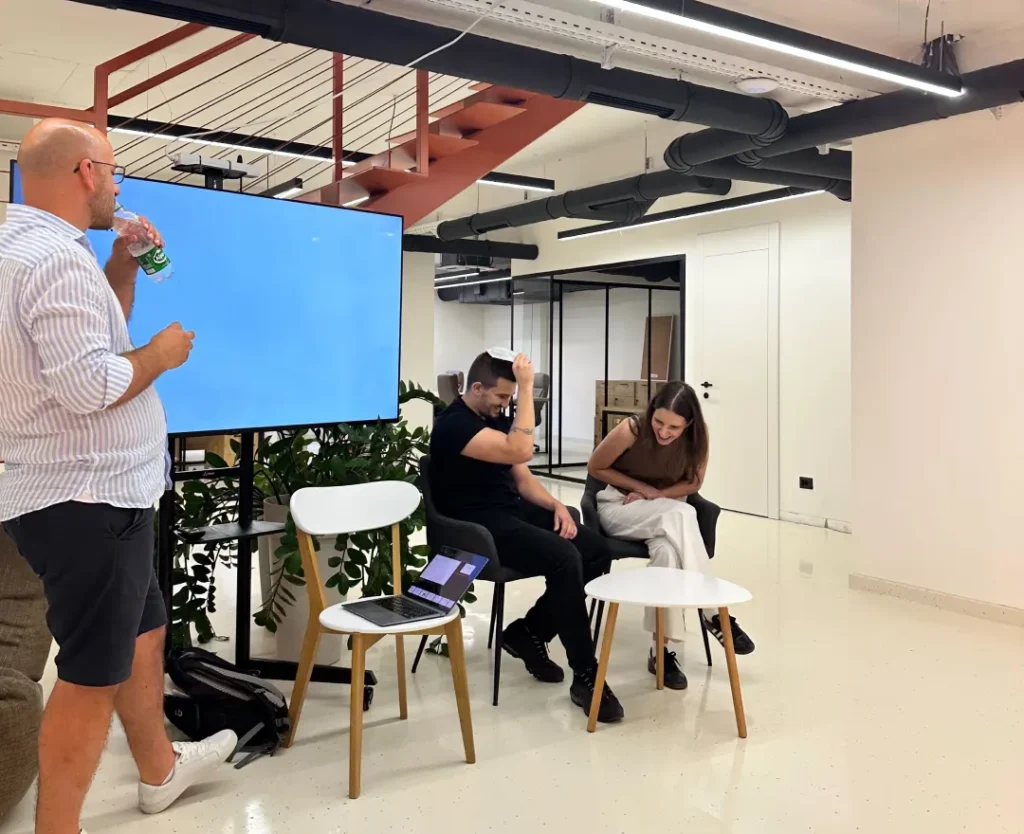

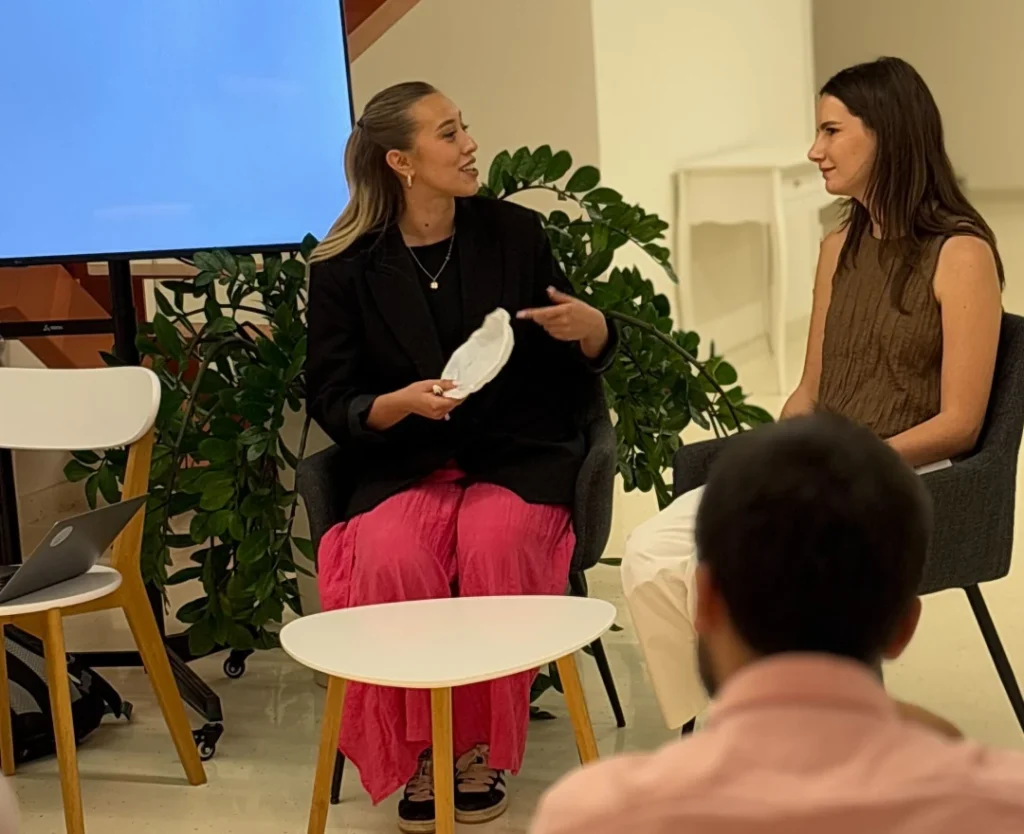
Übung macht den Meister
Um über die Theorie hinauszugehen, hat uns Dr. Morina durch eine Reihe interaktiver Aktivitäten geführt, die seine Ideen zum Leben erweckt haben.
In einer Übung wurde ein Teammitglied als „Käufer“ ausgewählt, sollte aber alles ablehnen, was ihm angeboten wurde. Die anderen Teammitglieder versuchten dann abwechselnd, dem Käufer ein fiktives Produkt zu verkaufen. Wie zu erwarten, konzentrierten sich die meisten auf überzeugende Sprache, Produktmerkmale oder Drucktaktiken. Dann mischte Dr. Morina ein und änderte das Drehbuch.
Anstatt das Produkt zu verkaufen, legte er den Fokus darauf, beim Käufer ein Verlangen danach zu wecken.
Die Lektion? Es geht nicht darum, mehr Druck zu machen, sondern darum, die zugrunde liegende Motivation zu verstehen.
In einer anderen Übung haben wir uns zu zweit zusammengetan, um klare Kommunikation zu üben. Eine Person hat ein ausgedrucktes Bild mit kurzen, nicht wiederholten Sätzen beschrieben, während der Partner versucht hat, es nachzubilden, ohne das Original zu sehen oder Fragen zu stellen; sie mussten sich nur auf aktives Zuhören verlassen.
Diese Übung hat gezeigt, dass Leute Infos je nach Sprache, Erfahrung und Annahmen unterschiedlich interpretieren. Sie hat deutlich gemacht, wie wichtig Präzision, klare Anweisungen, Anleitung und Perspektive für eine effektive Zusammenarbeit sind.
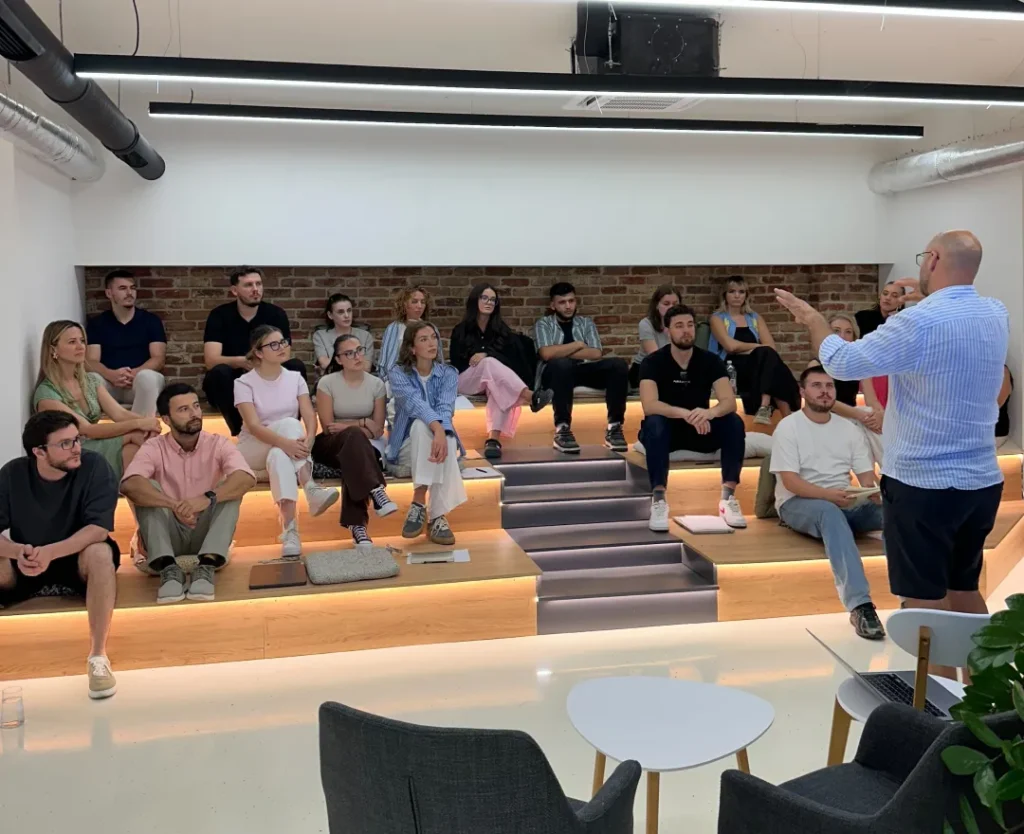


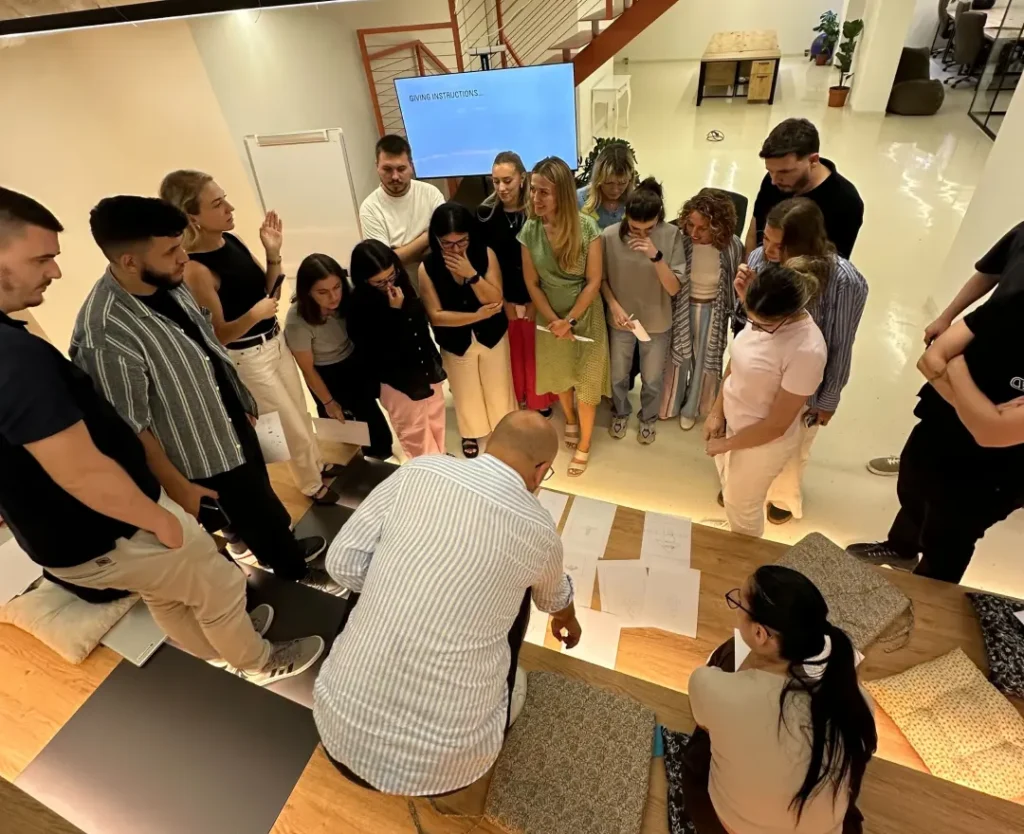
Die Erkenntnis
„Große Ergebnisse brauchen keine großen Schritte. Man muss einfach nur konsequent kleine Schritte machen“, meinte Dr. Morina.
Seine Session bot mehr als nur eine Theorie des Wandels; sie lieferte praktische Einblicke in die Veränderung von Verhaltensweisen, die Verbesserung der Kommunikation und das bewusste Wachstum.
Wir sind Dr. Morina echt dankbar, dass er sich Zeit genommen hat, sein Wissen und seine Energie mit uns geteilt hat und uns daran erinnert hat, dass der beste Fortschritt oft klein anfängt.
